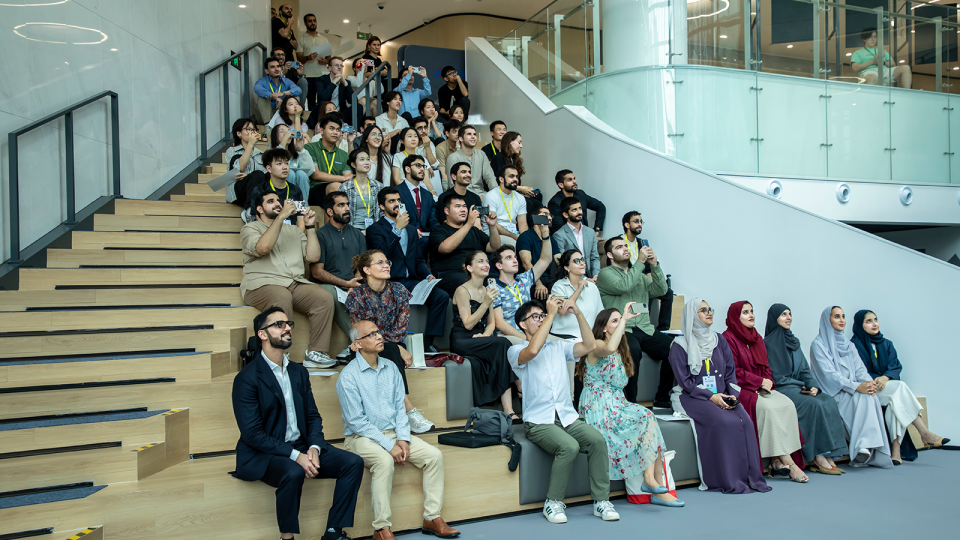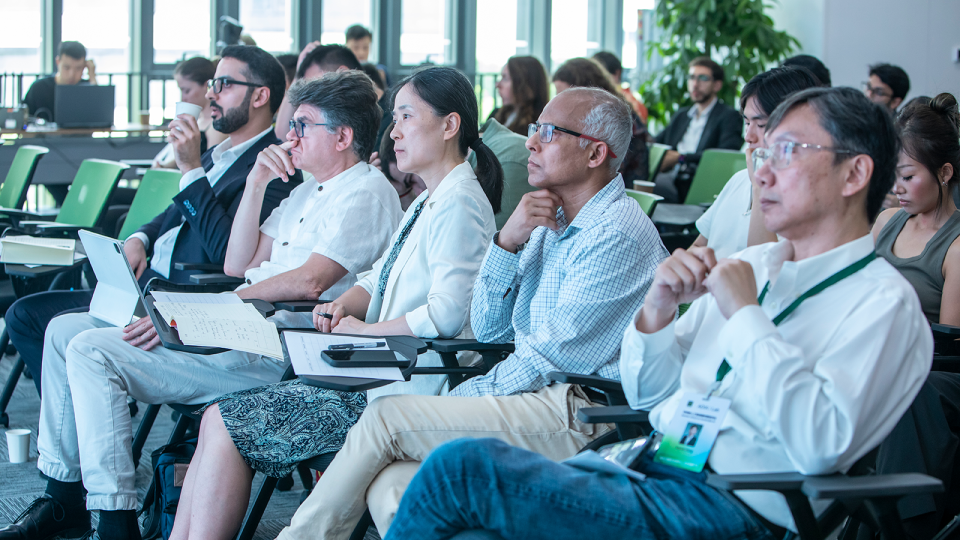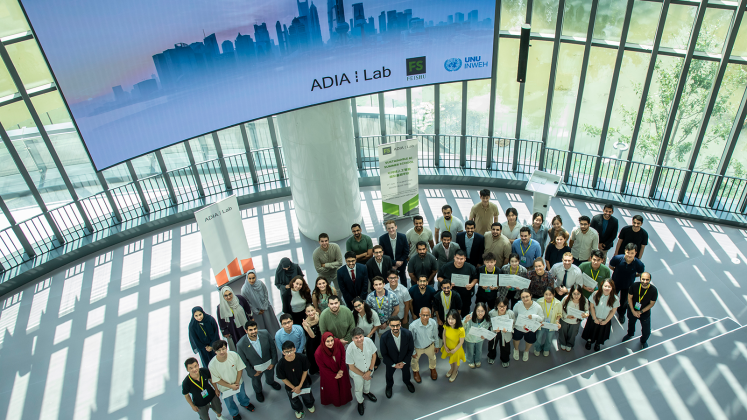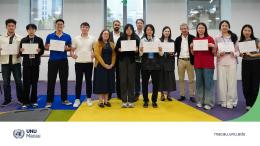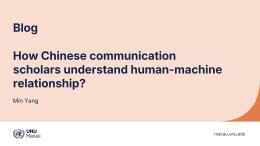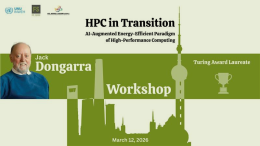The United Nations University Institute for Water, Environment and Health (UNU-INWEH), in collaboration with ADIA Lab, based in Abu Dhabi, and the Fields Institute for Research in Mathematical Sciences Representative office in Shanghai (FEISHU), hosted the inaugural International Summer School on Sustainable AI. The two-week program, held from July 21 to August 1, 2025, in Shanghai, reinforced UNU's commitment to advancing global education on trustworthy AI and sustainable innovation.
The intensive course at FEISHU's facilities provided a comprehensive and hands-on learning experience. Participants were immersed in a dynamic environment that combined expert lectures, interactive workshops, and collaborative research projects. The program was further enriched by a special opportunity for attendees to participate in the World Artificial Intelligence Conference (WAIC), held from July 26 to July 28 in Shanghai. The summer school concluded with each participant receiving a diploma jointly issued by UNU-INWEH, ADIA Lab, and FEISHU.
The program's agenda was designed to provide a holistic understanding of how AI can be a force for positive change. Sessions were led by leading experts from academia, industry, and policy, who guided participants through cutting-edge discussions at the intersection of AI and sustainability. The curriculum explored both the theoretical foundations and the real-world applications of responsible AI, from technical methods to their tangible impact on global challenges. Through a blend of theoretical knowledge and practical skills, the agenda equipped participants with the tools needed to shape a more sustainable future.
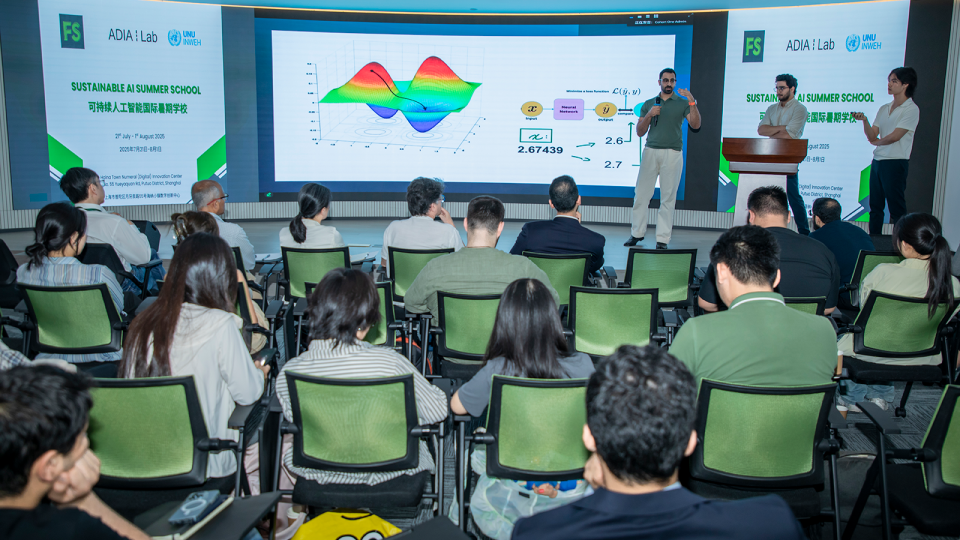
The summer school attracted a highly talented and diverse group of participants, reflecting a global commitment to sustainable innovation. The program welcomed 54 international attendees, comprising both master's and PhD students, as well as early-career researchers and professionals.
The cohort demonstrated a strong international and gender-diverse presence. Attendees came from a wide range of countries, including a large representation from China and the UAE, as well as participants from Germany, Canada, Georgia, Morocco, Mexico, Spain, Italy, and British/Hong Kong SAR. This diversity fostered a vibrant collaborative environment, allowing participants to share unique perspectives and build a strong international network of future leaders in sustainable AI.
